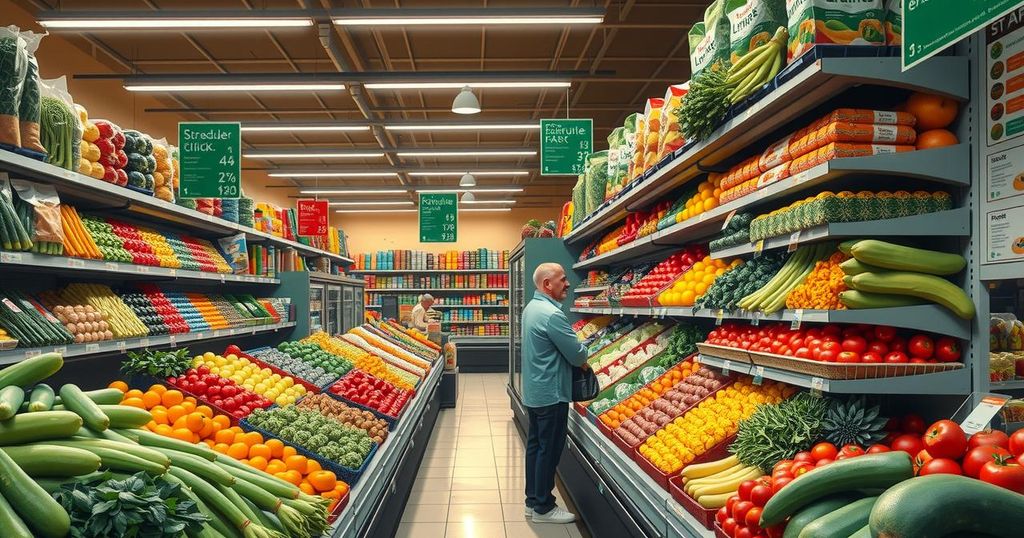As South Africa’s economy recovers, the food sector is anticipated to evolve, aided by lower interest rates and improved GDP growth. Shoprite showcases solid revenue growth, while Spar faces challenges but shows promise after strategic changes. AVI advises caution for the future, whereas Tiger Brands remains optimistic. Key outcomes depend on food price inflation impacts on producers versus retailers.
As South Africa’s economy recommences its ascent, the food sector is expected to undergo significant changes. Factors such as decreasing interest rates, improved GDP growth, and forthcoming cash from the two-pot retirement system are likely to enhance consumer spending. This raises the critical question of whether food producers or retailers will be the ultimate beneficiaries of these developments.
Consumer spending and food sector volumes are anticipated to improve due to bolstered GDP growth and rate cuts, alongside withdrawals from the two-pot retirement system. Although food producers may benefit from recovering margins as commodity price inflation remains subdued, a potential increase in food price inflation by the first quarter of 2025 could shift advantages toward retailers, who historically have profited during such scenarios.
Shoprite’s RSA Supermarkets has reported a notable 10.4% revenue growth without raising promotional subsidies amidst a low inflation context. This success is attributed to strategic loyalty partnerships and store growth, with a decrease in like-for-like growth from 8% in the previous fiscal year to 5.4% in the first half of 2025. During this period, operating profits have increased significantly, strengthened by lower load shedding expenses.
Spar’s recent trading update revealed some challenges, with a 3.4% revenue growth in Southern Africa. Factors hampering performance include the planned closure of 13 grocery stores and reduced promotional activities. Despite these setbacks, operational losses have declined due to improved store performance and closure of underperforming locations, leading to a cautious outlook following a strategic reset.
AVI has recently announced a 9% year-on-year growth in headline earnings per share, despite only a 1% increase in group revenue. However, concerns about the outlook have arisen with management suggesting that profit growth may not continue at the same pace, especially without improvements in the operational environment. Despite this, AVI remains a reliable long-term investment with strong historical performance.
Tiger Brands has achieved a 3% revenue increase for the four months ending January compared to the previous year, driven by a combination of volume and price inflation. The company’s proactive strategies to reduce input costs have allowed for maintaining relevant price points for consumers. Management expresses optimism about a nascent recovery in the consumer market, focusing on sustained volume and profit growth moving forward.
In conclusion, South Africa’s food retail landscape is poised for transformation amidst economic recovery. Shoprite leads the sector with robust growth and strategic initiatives, while Spar is reassessing its strategies after facing revenue challenges. AVI presents a cautious outlook despite historical performance, and Tiger Brands remains optimistic about consumer trends. The interplay between food price inflation and consumer spending will determine the future dynamics between food producers and retailers.
Original Source: www.zawya.com




